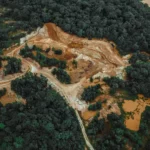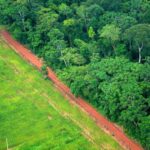Latin America and the Caribbean at COP28: 5 issues you should know about

The effects of climate change are becoming increasingly evident, ranging from floods and droughts to hurricanes and heat waves, with significant costs in terms of human lives and the global economy; a situation that is especially evident in developing countries, which are in vulnerable situations and have fewer resources to protect themselves.
The measures adopted to address climate change are not effective enough to keep the global temperature increase below 1.5°C and thus avoid the most serious consequences. It is therefore imperative that countries intensify their efforts to reverse this trend, warns the latest report of the Intergovernmental Panel on Climate Change (IPCC), which notes that actions taken in this decade will have impacts that will last «for thousands of years».
Latin America and the Caribbean is one of the regions most vulnerable to the effects of the climate crisis. However, as the newspaper El País, emissions, the region only represents 11% of global emissions. So, why is COP28 important for our region and for public and private agendas? From Libélula we present the 5 main topics and the relevance for our countries.
- The first Global Stocktake: an opportunity to accelerate global climate action
According to the World Resources Institute, The Global Stocktake process “assesses global progress in reducing greenhouse gas emissions, building resilience to climate impacts, and securing financing and support to address the climate crisis. At COP28, everything related to the global climate action situation will be discussed. According to the Global Stocktake Synthesis Report, In order to reduce global GHG emissions by 43 % by 2030 and 60 % by 2035 from 2019 levels and to reach net zero in global CO2 emissions by 2050, there is a need to redouble action and support to implement mitigation measures at the national level and to set more ambitious Nationally Determined Contributions (NDCs) targets.
For Latin America and the Caribbean, this point represents a priority, given that the Global Stocktaking Report highlights the urgency of increasing support for adaptation and addressing loss and damage, especially for vulnerable communities, a topic we will discuss later.
- The climate finance gap for vulnerable countries
To address climate change, it is essential to have financing, and to this end the Green Climate Fund was to raise US$100 billion annually from developed countries so that developing countries can implement mitigation actions and address the climate crisis. However, this figure has not been achieved and according to Euronews, Financing will be a central issue at COP28 and some economists have indicated that about one trillion dollars is needed to support developing countries.
- The Loss and Damage Fund: what to expect at COP28
One of the main milestones during COP27, held last year, was the creation of the Loss and Damage Fund, which would allow the most vulnerable countries to have financial systems to face the climate crisis. Among these countries, priority is given to those of the Caribbean. Euronews explains that an agreement on the amount of money to be allocated to this fund is expected to be reached during COP28. It is also known that the World Bank is the interim host of this system and prefers to provide loans rather than grants.
- Climate adaptation: a priority for the region
Adaptation to climate change allows countries, especially those most exposed to the effects of temperature increases, to mitigate the ravages and be resilient. For this reason, and according to Efe Green, during COP28 is expected to that developing countries once again press in Dubai for the doubling of the Global Adaptation Goal as promised by rich countries in Glasgow in 2021, in addition to the request already expressed that these more industrialized economies “assume their responsibility” and mobilize funds also for adaptation.
In countries such as Brazil, where forest fires have occurred; in Bolivia, where the ravages of droughts are increasing; or in Peru, where floods are becoming more common, the implementation of adaptation actions is urgently needed.
- Two years for a Latin American COP
We must remember that COP30, to be held in 2025 in Brazil, will put Latin America and the Caribbean in the climate limelight. Therefore, the progress made at COP28 and the path established by the region to demonstrate policies, actions and initiatives that contribute to face the climate crisis are essential.
It is important to understand that the next two years are fundamental for tackling climate change, but it will also be necessary to prioritize this issue in the region's public agendas. A path that is not simple, but very necessary.
← Previous
Next →
Stay up to date
Receive a summary of relevant news about companies and sustainability. All the months. Free!


